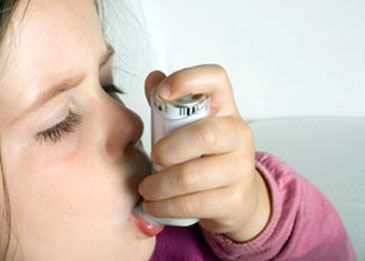Kids' Asthma Risk Increased by Parental Stress
 According to researchers air pollution is known to increase the risk of childhood asthma but parental stress has higher risks.
According to researchers air pollution is known to increase the risk of childhood asthma but parental stress has higher risks.
The study found that children of tense parents who lived in polluted areas were far more likely to have asthma than friends in the same neighborhood whose parents were more chilled out.
Ketan Shankardass, a postdoctoral research fellow at the Centre for Research on Inner City Health at The Li Ka Shing Knowledge Institute of St. Michael's Hospital in Toronto, lead researcher said, "There is an association between air pollution and asthma, and it grows with increasing exposure to stress in the household.
"The cause of asthma is still unknown," Shankardass said. "It's a major illness that affects a lot of people all around the world and we still don't really have a handle on what causes it so we can't control it very well. But this finding contributes to our understanding of that causal process."
Earlier findings have shown women who are stressed in pregnancy can raise the risk of their child developing asthma or other allergies. The report is published in this week's online edition of the Proceedings of the National Academy of Sciences.
In the study, Shankardass and his colleagues collected data on 2,497 healthy primary school children in southern California aged 5 to 9 who had no history of asthma or wheeze when the study started.
The researchers had the parents fill out a questionnaire on other known asthma risk factors like exposure to traffic-related air pollution and maternal smoking, as well as parental education, income and stress levels. They tracked the children for three years to see whether or not they developed asthma.
They found that stress or socioeconomic status by themselves did not increase the risk of developing asthma, however, when parental stress was combined with traffic pollution or exposure to smoking before birth, the risk of asthma increased more than it did for children exposed to pollution or smoke, but not stress.
Professor Rob McConnell and his team said it was possible that stress increases the inflammatory effects of pollutants in tobacco smoke and traffic fumes on the airways.
"These results suggest that children from stressful households are more susceptible to the effects of traffic-related pollution and in utero tobacco smoke on the development of asthma," they wrote.
Shankardass said that exposure to traffic pollution and prenatal smoking as well as stress are more common in lower socioeconomic areas, which may help explain why asthma may disproportionately affect children of disadvantaged parents.
"For once, we may have a piece of the puzzle that would explain the social disparities in asthma," he said.
Dr. Clifford Bassett, medical director of Allergy and Asthma Care of New York said, "Stress does have an impact on the immune system. Clearly, the relationship between stress, tobacco and air pollution are all bad guys." Bassett also thinks gauging household stress should be part of treating children with asthma.
Elaine Vickers of Asthma UK said "This study adds to existing evidence suggesting that a child's environment can impact on their risk of developing asthma.
"One in 11 children in the UK has asthma so studies like this are vital, as they provide an insight into the factors influencing asthma development and therefore how it might be prevented."